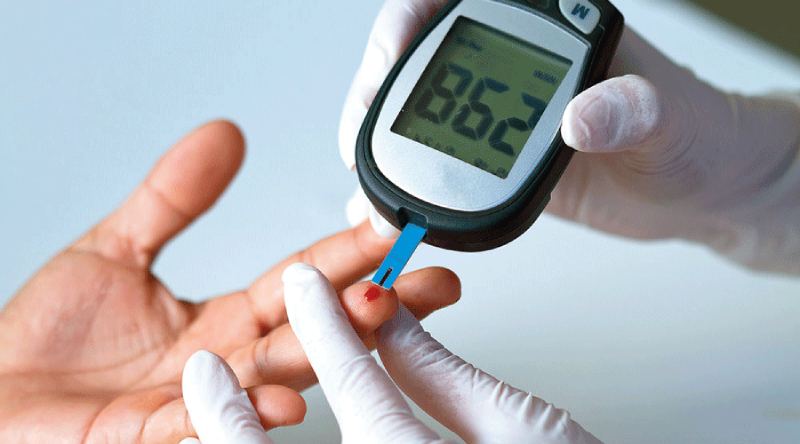Diabetes is a growing global health crisis, affecting millions of people and imposing significant burdens on healthcare systems and economies. Effective diabetes management not only improves individual health outcomes but also generates substantial economic benefits. By investing in comprehensive diabetes care, communities can enhance the quality of life for individuals with diabetes while simultaneously reducing healthcare costs and increasing productivity. This article explores the health and economic advantages of effective diabetes management strategies.
Understanding Diabetes and Its Impact
Diabetes, primarily consisting of type 1 and type 2, is a chronic condition characterized by high blood sugar levels due to insufficient insulin production or insulin resistance. The World Health Organization estimates that approximately 537 million adults live with diabetes globally, a number projected to rise to 643 million by 2030. The disease is associated with a range of complications, including cardiovascular disease, kidney failure, nerve damage, and vision problems, all of which can significantly impact an individual’s quality of life and lead to increased healthcare costs.
The economic burden of diabetes is staggering. In the United States alone, the total cost of diagnosed diabetes was estimated at $327 billion in 2017, encompassing medical expenses and lost productivity. As the prevalence of diabetes continues to rise, the importance of effective management strategies becomes increasingly clear.
The Health Benefits of Diabetes Management
- Improved Glycemic ControlEffective diabetes management focuses on achieving and maintaining optimal blood sugar levels. This involves regular monitoring of glucose levels, dietary adjustments, physical activity, and medication adherence. Improved glycemic control reduces the risk of complications such as cardiovascular disease, kidney damage, and neuropathy, enhancing the overall health and longevity of individuals with diabetes.
- Reduction of Diabetes ComplicationsWell-managed diabetes can significantly lower the incidence of complications. For instance, proper blood sugar control can decrease the risk of heart disease by up to 40%, while effective management of blood pressure and cholesterol levels further reduces cardiovascular risks. By preventing complications, individuals not only experience a better quality of life but also avoid costly medical interventions.
- Enhanced Mental Well-beingDiabetes management is not just about physical health; it also includes mental health. Living with diabetes can lead to anxiety and depression, which can, in turn, impact glycemic control. Comprehensive diabetes management that includes mental health support can help reduce these feelings, improving overall well-being. Programs that incorporate counseling and stress management techniques empower individuals to take control of their health, leading to better outcomes.
The Economic Benefits of Diabetes Management
- Cost Savings on HealthcareEffective diabetes management can lead to significant savings on healthcare costs. By preventing complications, individuals reduce the need for expensive treatments such as hospitalization, emergency room visits, and surgeries. For instance, studies have shown that every $1 invested in diabetes management can result in up to $7 in healthcare savings. This cost-effectiveness highlights the importance of investing in preventative care and management strategies.
- Increased ProductivityDiabetes can affect an individual’s ability to work due to health complications, fatigue, or missed days due to illness. By implementing effective management strategies, individuals can maintain better health, reducing absenteeism and improving productivity. Healthier employees contribute positively to the workforce, driving economic growth and stability.
- Lower Insurance CostsInsurance providers can benefit economically from effective diabetes management programs. By promoting preventive care and management, insurance companies can lower their payouts for complications related to poorly managed diabetes. This approach can lead to lower premiums for policyholders, making healthcare more affordable for everyone.
- Strengthening Community HealthInvesting in diabetes management programs can have a ripple effect on community health. As individuals experience better health outcomes, the overall burden on healthcare systems decreases, leading to healthier communities. A healthy workforce attracts businesses and stimulates economic development, creating a win-win situation for everyone involved.
Strategies for Effective Diabetes Management
- Comprehensive Diabetes EducationEducating individuals about diabetes management is crucial. Programs that provide information on diet, physical activity, medication adherence, and self-monitoring empower individuals to take control of their health. Community-based education initiatives can reach underserved populations, ensuring that everyone has access to the tools needed for effective management.
- Access to Healthcare ServicesEnsuring that individuals have access to healthcare services, including regular check-ups, screenings, and diabetes management programs, is essential. Telehealth services can also improve access, allowing individuals to connect with healthcare providers remotely and receive support and guidance without the barriers of transportation or time constraints.
- Support SystemsBuilding support networks that include healthcare professionals, family members, and peer support groups can enhance diabetes management. These support systems provide encouragement, accountability, and a sense of community, which can significantly improve adherence to management plans.
- Technology IntegrationLeveraging technology in diabetes management can lead to improved outcomes. Continuous glucose monitors (CGMs), mobile health apps, and telehealth services provide individuals with real-time data and support, enabling better decision-making regarding their health.
Conclusion
Harnessing the health and economic benefits of effective diabetes management is essential for individuals, healthcare systems, and communities. By investing in comprehensive diabetes care, we can improve health outcomes, prevent complications, and reduce healthcare costs. The economic advantages of effective diabetes management extend beyond the individual, fostering healthier communities and stimulating economic growth.
As we face the growing diabetes epidemic, it is vital to prioritize strategies that promote health and well-being. By embracing a holistic approach to diabetes management, we can create a healthier future for individuals with diabetes and society as a whole. Investing in diabetes management is not only a moral imperative; it is a smart economic strategy that pays dividends in health and prosperity.

 Diabetology2 weeks ago
Diabetology2 weeks ago
 Diabetology1 week ago
Diabetology1 week ago
 Diabetology5 days ago
Diabetology5 days ago
 Diabetology7 days ago
Diabetology7 days ago
 Diabetology7 days ago
Diabetology7 days ago
 Diabetology3 days ago
Diabetology3 days ago
 Diabetology3 days ago
Diabetology3 days ago
 Diabetology1 day ago
Diabetology1 day ago












